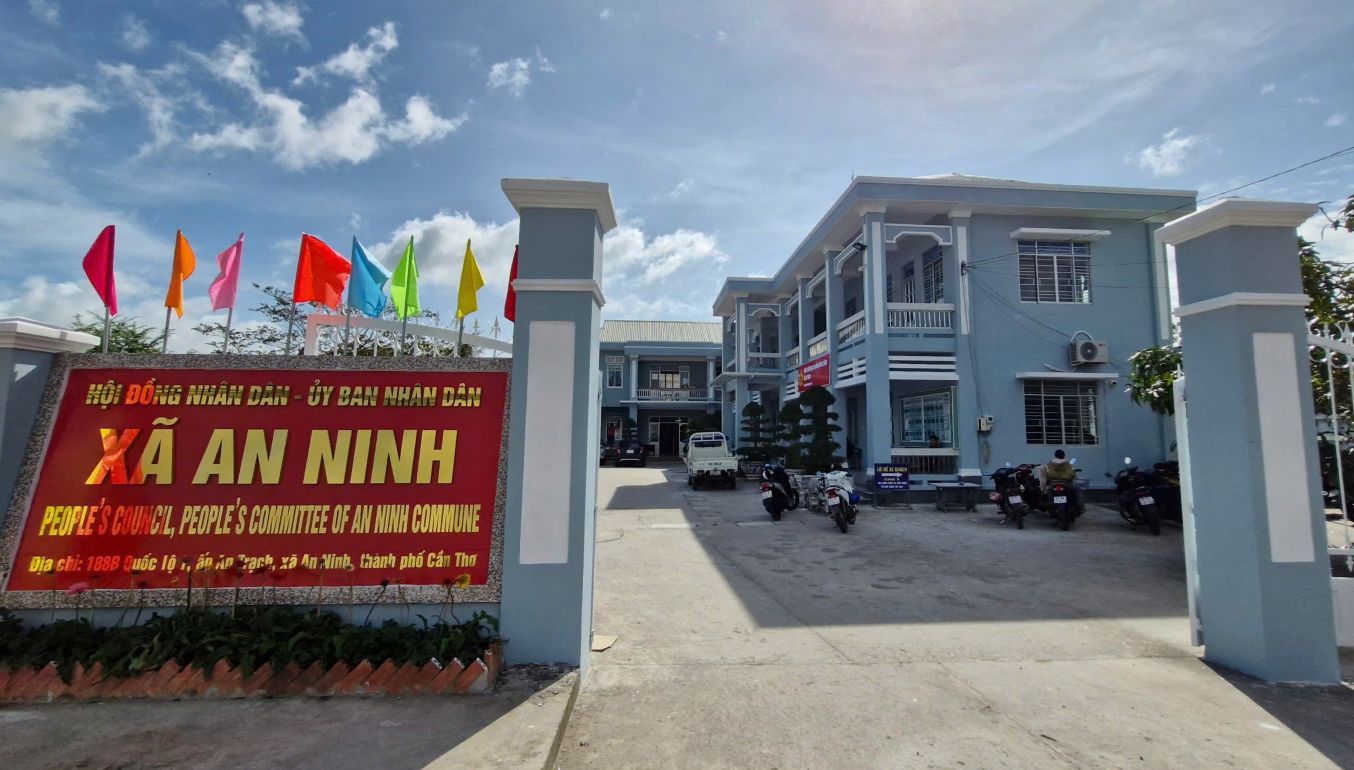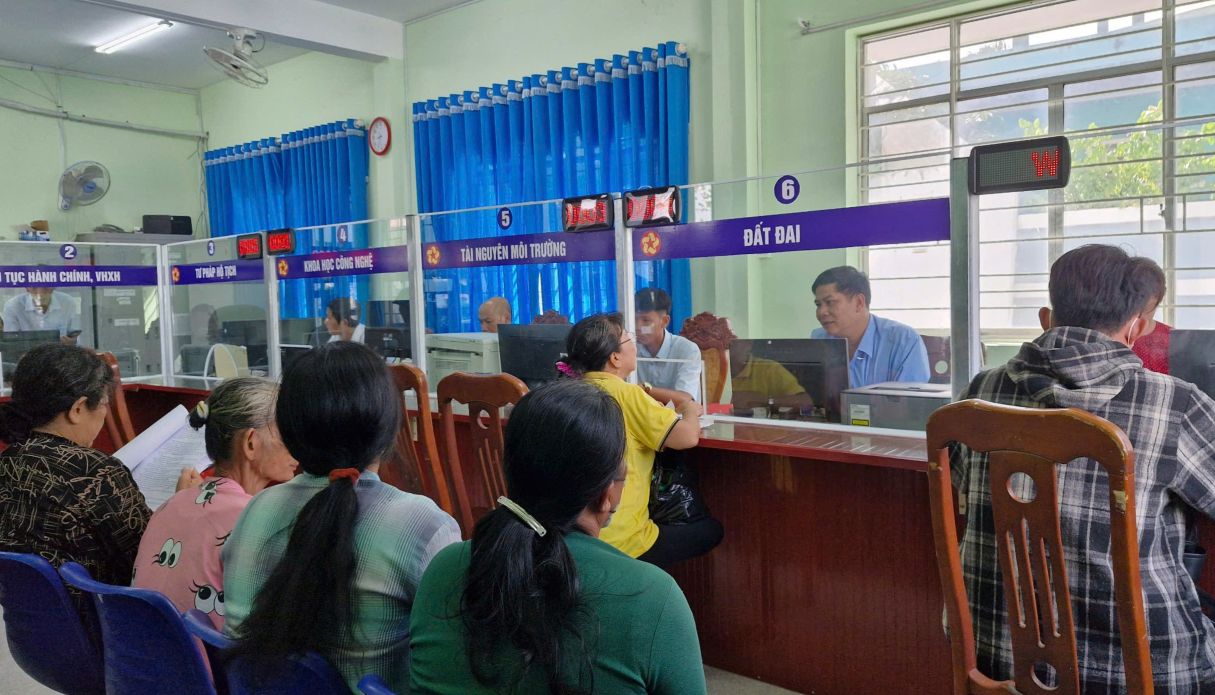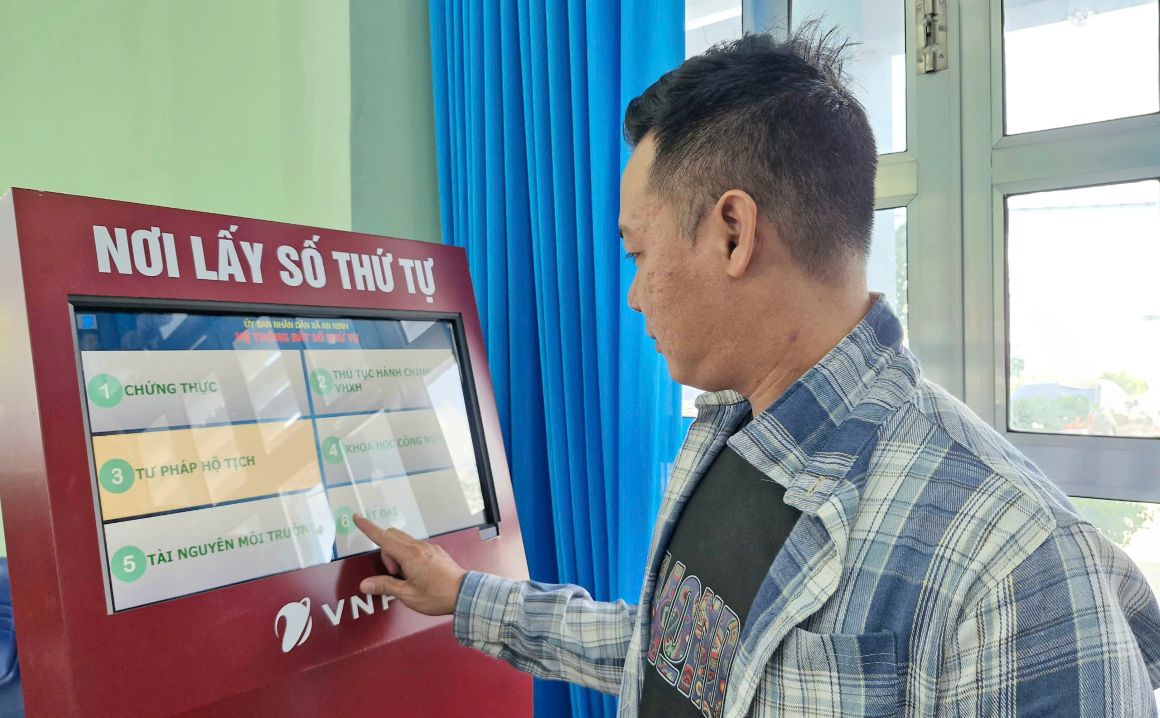According to records at Public Administration Service Centers in communes and wards of Can Tho City, with synchronous investment in facilities, reorganization of the apparatus and improvement of service attitude, the grassroots government is gradually narrowing the gap between state agencies and people, especially for the elderly and ethnic minorities.

At the An Ninh Commune Public Administration Service Center (Can Tho City), the working atmosphere was urgent but orderly. Although the number of people coming to do the procedures is quite large, most of whom are elderly Khmer people, all processes are handled quickly.
Mr. Huy Dien Sieng - a Khmer ethnic group in the locality - shared: "As I am old, accessing administrative services is slower and more difficult than young people, so I am also afraid to complete administrative documents and procedures. However, when I came here, if I didn't understand something, there was an officer who instructed me to do it quickly, without being confused".

Ms. Chau Ngoc Hong - Vice Chairman of An Ninh Commune People's Committee - said that An Ninh commune was merged from An Ninh commune and An Hiep commune (Chau Thanh district, old Soc Trang province). The commune has 16 hamlets, with a total natural area of nearly 7,000 hectares. The whole commune has more than 8,000 households with more than 40,000 people. Of which, the Khmer ethnic group accounts for nearly 58%. The Khmer people have also approached digital transformation positively, but there are also some elderly people who have not kept up and are not good at Vietnamese.
Ms. Hong informed that the locality has proactively arranged more staff who know Khmer to support the elderly, those who are not fluent in Vietnamese or are not familiar with technology. In addition, the locality requires the staff to be dedicated, polite, and always ready to explain in detail so that people can understand and do it easily.
Similarly, the Public Administration Service Center in Thuan Hoa commune also recorded many cases of elderly people coming to do procedures. According to the records, although the number of people was larger than before, the staff here still enthusiastically supported and explained clearly step by step, helping people complete the documents quickly.
Mr. Kim Sai Huil - a Khmer ethnic person - and his wife came to do land application procedures and were supported by the staff from the information opening stage until completion. "I find it very dedicated, especially for ethnic minorities like me who are still weak in Vietnamese, while the staff still carefully guide each place. finish early, no need to worry about anything".
Mr. Dinh Phuoc Phong is also an elderly Khmer, who believes that transferring administrative services to a commune is very appropriate: "Now go to a nearby commune, not to a distant district. The staff welcomes people, they are happy and do it quickly".

In Vinh Hai commune, where over 75% of the population is ethnic minorities, there is also a clear change in the way people access administrative services.
Ms. Ly Thi Nhi (over 60 years old), who came to the commune to do the birth control procedures for the baby, said: "The officers told me to sit and ask me what procedures I had to do before doing it. It's very fast. I am very happy, because I am old and come here to see friendly staff and dedicated guidance".
Ms. Lam Mong Dao Nguyen - civil servant of the Office - Statistics of Vinh Hai commune - said that it is the gentleness and patience in communication that has helped people open their hearts more easily. "The elderly don't understand and ask again. I speak gently, explain slowly and people will listen. If I do it too harshly, people will be afraid and not dare to come back".











